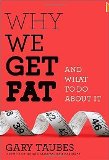March 10th, 2011 by Harriet Hall, M.D. in Opinion, Research
No Comments »

A new article in the Journal of Women’s Health by Westhoff, Jones, and Guiahi asks “Do New Guidelines and Technology Make the Routine Pelvic Examination Obsolete?”
The pelvic exam consists of two main components: The insertion of a speculum to visualize the cervix and the bimanual exam where the practitioner inserts two fingers into the vagina and puts the other hand on the abdomen to palpate the uterus and ovaries. The rationales for a pelvic exam in asymptomatic women boil down to these:
- Screening for chlamydia and gonorrhea
- Evaluation before prescribing hormonal contraceptives
- Screening for cervical cancer
- Early detection of ovarian cancer
None of these are supported by the evidence. Eliminating bimanual exams and limiting speculum exams in asymptomatic patients would reduce costs without reducing health benefits, allowing for better use of resources for services of proven benefit. Pelvic exams are necessary only for symptomatic patients and for follow-up of known abnormalities. Read more »
*This blog post was originally published at Science-Based Medicine*
March 3rd, 2011 by David H. Gorski, M.D., Ph.D. in Opinion, Quackery Exposed, Research
No Comments »

Last Friday, Mark Crislip posted an excellent deconstruction of a very disappointing article that appeared in the most recent issue of Skeptical Inquirer (SI), the flagship publication of the Committee for Skeptical Inquiry (CSI). I say “disappointing,” because I was disappointed to see SI publish such a biased, poorly thought out article, apparently for the sake of controversy. I’m a subscriber myself, and in general enjoy reading the magazine, although of late I must admit that I don’t always read each issue cover to cover the way I used to do. Between work, grant writing, blogging, and other activities, my outside reading, even of publications I like, has declined. Perhaps SI will soon find itself off my reading list.
Be that as it may, I couldn’t miss the article that so irritated Mark, because it irritated me as well. There it was, emblazoned prominently on the cover of the March/April 2011 issue: “Seven Deadly Medical Hypotheses.” I flipped through the issue to the article to find out that this little gem was written by someone named Michael Spector, M.D. A tinge of familiarity going through my brain, I tried to think where I had heard that name before.
And then I remembered.
Dr. Spector, it turns out, first got on my nerves about a year ago, when he wrote an article for the January/February 2010 issue of SI entitled “The War on Cancer: A Progress Report for Skeptics.” I remember at that time being irritated by the article and wanting to pen a discussion of the points in that article but don’t recall why I never did. It was probably a combination of the fact that SI doesn’t publish its articles online until some months have passed and perhaps my laziness about having to manually transcribe with my own little typing fingers any passages of text that I wanted to cite. By the time the article was available online, I forgot about it and never came back to it — until now. I should therefore, right here, right now, publicly thank Mark (and, of course, Dr. Spector) for providing me the opportunity to revisit that article in the context of piling on, so to speak, Dr. Spector’s most recent article. After all, Deadly Hypothesis Seven (as Dr. Spector so cheesily put it) is:
From a cancer patient population and public health perspective, cancer chemotherapy (chemo) has been a major medical advance.
Dr. Spector then takes this opportunity to cite copiously from his 2010 article, sprinkling “(Spector, 2010)” throughout the text like powdered sugar on a cupcake. There’s the opening I needed to justify revisiting an article that’s more than a year old! And what fantastic timing, too, hot on the heals of my post from a couple of weeks ago entitled “Why Haven’t We Cured Cancer Yet?” Read more »
*This blog post was originally published at Science-Based Medicine*
February 24th, 2011 by Harriet Hall, M.D. in Health Tips, Research
1 Comment »

I was surprised to get this e-mail from a reader:
Surely, Dr. Hall, the public mania for nutritional supplements is baseless. All the alleged nutrients in supplements are contained in the food we eat. And what governmental agency has oversight responsibility regarding the production of these so-call nutritional supplements? Even if one believes that such pills have value, how can the consumer be assured that the product actually contains what the label signifies? I have yet to find a comment on this subject on your otherwise informative website.
My co-bloggers and I have addressed these issues repeatedly.Peter Lipson covered DSHEA (The Diet Supplement Health and Education Act) nicely. It’s all been said before, but perhaps it needs to be said again — and maybe by writing this post I can make it easier for new readers to find the information.
Food, Medicine, or Something In Between?
The FDA regulates foods and has been instrumental in improving the safety of our food supply. It regulates prescription and over-the-counter medications, requiring evidence of effectiveness and safety before marketing. Surveys have shown that most people falsely assume these protections extend to everything on the shelves including diet supplements, but they don’t.
Under the 1994 Diet Supplement Health and Education Act (DSHEA), a variety of products such as vitamins, minerals, herbs and botanicals, amino acids, enzymes, organ tissues, and hormones can evade the usual controls if they are sold as diet supplements. Under the DSHEA, the manufacturer doesn’t have to prove to the FDA that a product is safe and effective; it is up to the FDA to prove that it isn’t safe, and until recently there was no systematic method of reporting adverse effects (required reporting is still limited to serious effects like death).
So far the FDA has only managed to ban one substance, ephedra, and it took the death of a prominent sports figure and considerable skirmishing with the courts to accomplish that. Independent lab tests of diet supplements have found a high rate of contamination (with things like heavy metals and prescription drugs) and dosages wildly varying from the label. A striking example was Gary Null’s recent poisoning with vitamin D from one of his own products which contained 1,000 times the intended amount.
The FDA has issued rules on good manufacturing practices, but standardization is not required and it remains to be seen whether the new rules will effectively improve product quality. Read more »
*This blog post was originally published at Science-Based Medicine*
February 17th, 2011 by Steve Novella, M.D. in Health Tips, Research
No Comments »

 For the last week I have had a cold. I usually get one each winter. I have two kids in school and they bring home a lot of viruses. I also work in a hospital, which tends (for some reason) to have lots of sick people. Although this year I think I caught my cold while traveling. I’m almost over it now, but it’s certainly a miserable interlude to my normal routine.
For the last week I have had a cold. I usually get one each winter. I have two kids in school and they bring home a lot of viruses. I also work in a hospital, which tends (for some reason) to have lots of sick people. Although this year I think I caught my cold while traveling. I’m almost over it now, but it’s certainly a miserable interlude to my normal routine.
One thing we can say for certain about the common cold — it’s common. It is therefore no surprise that there are lots of cold remedies, folk remedies, pharmaceuticals, and “alternative” treatments. Finding a “cure for the common cold” has also become a journalistic cliche — reporters will jump on any chance to claim that some new research may one day lead to a cure for the common cold. Just about any research into viruses, no matter how basic or preliminary, seems to get tagged with this headline. (It’s right up there with every fossil being a “missing link.”)
But despite the commonality of the cold, the overall success of modern medicine, and the many attempts to treat or prevent the cold — there are very few treatments that are actually of any benefit. The only certain treatment is tincture of time. Most colds will get better on their own in about a week. This also creates the impression that any treatment works — no matter what you do, your symptoms are likely to improve. It is also very common to get a mild cold that lasts just a day or so. Many people my feel a cold “coming on” but then it never manifests. This is likely because there was already some partial immunity, so the infection was wiped out quickly by the immune system. But this can also create the impression that whatever treatment was taken at the onset of symptoms worked really well, and even prevented the cold altogether.
What Works
There is a short list of treatments that do seem to have some benefit. Nonsteroidal anti-inflammatory drugs (NSAIDs), like aspirin, ibuprofen, and naproxen, can reduce many of the symptoms of a cold — sore throat, inflamed mucosa, aches, and fever. Acetaminophen may help with the pain and fever, but it is not anti-inflammatory and so will not work as well. NSAIDs basically take the edge off, and may make it easier to sleep. Read more »
*This blog post was originally published at Science-Based Medicine*
February 2nd, 2011 by Harriet Hall, M.D. in Book Reviews, Opinion
1 Comment »

 Journalist Gary Taubes created a stir in 2007 with his impressive but daunting 640-page tome Good Calories, Bad Calories. Now he has written a shorter, more accessible book Why We Get Fat: And What to Do About It to take his message to a wider audience. His basic thesis is that:
Journalist Gary Taubes created a stir in 2007 with his impressive but daunting 640-page tome Good Calories, Bad Calories. Now he has written a shorter, more accessible book Why We Get Fat: And What to Do About It to take his message to a wider audience. His basic thesis is that:
– The calories-in/calories-out model is wrong.
– Carbohydrates are the cause of obesity and are also important causes of heart disease, type 2 diabetes, cancer, Alzheimer’s, and most of the so-called diseases of civilization.
– A low-fat diet is not healthy.
– A low-carb diet is essential both for weight loss and for health.
– Dieters can satisfy their hunger pangs and eat as much as they want and still lose weight as long as they restrict carbohydrates.
He supports his thesis with data from the scientific literature and with persuasive theoretical arguments about insulin, blood sugar levels, glycemic index, insulin resistance, fat storage, inflammation, the metabolic syndrome, and other details of metabolism. Many readers will come away convinced that all we need to do to eliminate obesity, heart disease and many other diseases is to get people to limit carbohydrates in their diet. I’m not convinced, because I can see some flaws in his reasoning. Read more »
*This blog post was originally published at Science-Based Medicine*













